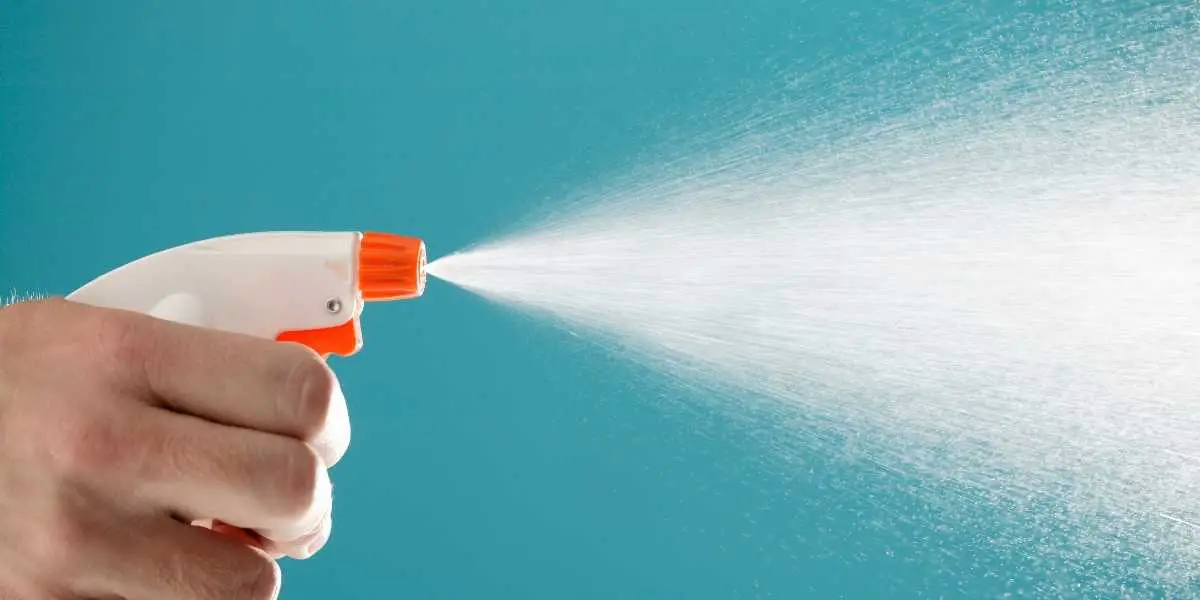Wondering if Lysol spray is safe for your fabric furniture? You're not alone. Understanding the potential impact of using Lysol on your upholstery is crucial for maintaining its longevity and appearance.
In this guide, we'll explore the safety of using Lysol on fabric furniture, potential risks, and safe alternatives for disinfecting. By the end, you'll have the knowledge to make informed decisions about keeping your fabric furniture clean and well-maintained.
Let's dive in and uncover the best practices for caring for your beloved fabric furniture.
Key Takeaways
- Lysol spray contains active ingredients such as ethanol and alkyl dimethyl benzyl ammonium saccharinate that effectively kill germs and bacteria on fabric furniture.
- However, Lysol may cause discoloration, fading, and damage to the fabric due to its harsh chemicals.
- It is important to test Lysol on a small area and follow manufacturer's instructions to avoid any potential damage or adverse reactions.
- Safe alternatives for disinfecting fabric furniture include hydrogen peroxide, rubbing alcohol, white vinegar, baking soda, tea tree oil, and essential oils, which provide effective disinfection without harsh chemicals.
Understanding Lysol Spray and Its Ingredients
You can understand Lysol spray and its ingredients by examining its chemical composition and their effects on fabric furniture. Lysol spray is known for its disinfecting properties, making it a popular choice for maintaining upholstery care. The active ingredients in Lysol spray typically include ethanol, alkyl dimethyl benzyl ammonium saccharinate, and other cleaning agents. These ingredients work together to effectively kill germs and bacteria on fabric furniture, providing a safe and clean environment for your home.
When using Lysol spray on fabric furniture, it's essential to consider the potential impact on the material. While Lysol is generally safe for most fabrics, it's always best to test it on a small, inconspicuous area first to ensure that it doesn't cause any discoloration or damage. Additionally, it's important to follow the manufacturer's instructions on the Lysol spray bottle to achieve the best results without compromising the fabric's integrity.
Understanding the chemical composition of Lysol spray and its effects on fabric furniture allows you to make informed decisions when it comes to disinfecting and maintaining upholstery. By following proper usage guidelines, you can effectively use Lysol spray to keep your fabric furniture clean and free from harmful germs.
Potential Risks of Using Lysol on Fabric Furniture
One potential risk of using Lysol on fabric furniture is the possibility of causing discoloration or damage to the material. When considering using Lysol on your fabric furniture, it's important to be aware of the potential risks involved.
Here are some precautions to keep in mind:
- Discoloration: Lysol contains chemicals that may react with the dyes in fabric, leading to discoloration or fading of the material.
- Damage to Fabric: The chemicals in Lysol can be harsh and may cause damage to the fibers of the fabric, leading to weakening or deterioration of the material over time.
- Residue Build-Up: If not properly diluted or wiped clean, Lysol may leave a residue on the fabric, which can attract dirt and dust, leading to a dull or dirty appearance.
To mitigate these risks, it's important to spot test Lysol on a small, inconspicuous area of the fabric furniture before applying it more broadly. Additionally, always follow the manufacturer's instructions for cleaning and maintaining your specific type of fabric.
Taking these precautions will help minimize the potential risks associated with using Lysol on fabric furniture.
Safe Alternatives for Disinfecting Fabric Furniture
When disinfecting fabric furniture, consider using a gentle fabric-safe disinfectant as an alternative to Lysol spray. There are several safe disinfectants and natural cleaners that are effective at killing germs and bacteria without causing damage to your fabric furniture. Here are some safe and effective alternatives to Lysol spray:
| Safe Disinfectants | Natural Cleaners |
|---|---|
| Hydrogen Peroxide | White Vinegar |
| Rubbing Alcohol | Baking Soda |
| Tea Tree Oil | Lemon Juice |
| Citrus Extracts | Essential Oils |
These alternatives provide a safer way to disinfect your fabric furniture without the harsh chemicals found in some commercial disinfectants. Hydrogen peroxide and rubbing alcohol are effective at killing germs, while natural cleaners such as white vinegar and baking soda offer gentle yet powerful disinfecting properties. Tea tree oil and essential oils not only disinfect but also leave a pleasant natural scent. When choosing a disinfectant for your fabric furniture, opt for these safe alternatives to ensure both cleanliness and the preservation of your furniture.
Proper Application of Lysol on Upholstery
To ensure the proper application of Lysol on upholstery, consider the fabric's compatibility and follow the manufacturer's instructions for effective disinfection. When applying Lysol on upholstery, it's important to:
- Check Fabric Compatibility:
Before applying Lysol, check the fabric's care label for any specific cleaning instructions or warnings regarding certain chemicals. Some fabrics may be sensitive to certain disinfectants, so it's crucial to ensure compatibility.
- Test in an Inconspicuous Area:
Before disinfecting the entire upholstery, test the Lysol spray in a small, inconspicuous area to check for any adverse reactions. This will help prevent potential damage or discoloration to the fabric.
- Allow Sufficient Drying Time:
After applying Lysol, allow the upholstery to dry thoroughly before using the furniture again. This will ensure that the disinfectant has enough time to effectively kill any germs while preventing any potential transfer to clothing or skin.
Proper application of Lysol on upholstery is crucial for effective disinfection while maintaining the integrity of the fabric. By following these steps, you can ensure the cleanliness and longevity of your upholstery.
Tips for Cleaning and Maintaining Fabric Furniture
Taking care of your fabric furniture is essential to ensure its longevity and appearance. Regular vacuuming, spot cleaning, and using fabric protectors can help maintain the cleanliness and condition of your upholstery.
Lysol on Fabric
Ensure proper maintenance and regular cleaning to preserve the quality of your fabric furniture when using Lysol spray. When applying Lysol on fabric, consider the following:
- Proper Application: Before using Lysol on your fabric furniture, test it on a small, inconspicuous area to ensure it doesn't cause any damage or discoloration.
- Disinfecting Upholstery: Use Lysol spray to disinfect your upholstery by lightly misting the fabric from a distance, ensuring it doesn't become saturated. Allow it to air dry thoroughly.
- Fabric Care: To maintain the fabric's integrity, avoid over-spraying and always follow the manufacturer's cleaning instructions. Regularly vacuum your fabric furniture to remove dust and debris.
Fabric Furniture Care
Regular maintenance and proper cleaning are essential for preserving the quality and longevity of your fabric furniture. To protect your upholstery, consider applying a fabric protection spray to create a barrier against spills and stains.
When it comes to stain removal, prompt action is crucial. Blot the stain with a clean cloth to soak up as much liquid as possible, then use a mild detergent and water to gently clean the affected area. Always test any cleaning solution on a hidden area of the fabric first to ensure it doesn't cause damage.
For regular care, vacuum your fabric furniture regularly to remove dust and debris, and consider rotating cushions to ensure even wear.
Conclusion: Making Informed Decisions for Upholstery Care
When maintaining fabric furniture, prioritize informed decision-making for effective upholstery care. To make the best choices for your upholstery, consider the following:
- Regular Maintenance: Implement a regular cleaning schedule for your fabric furniture to prevent dirt and stains from settling in. Vacuum your upholstery weekly to remove dust and debris, and consider using a fabric protector to guard against spills and stains.
- Gentle Cleaning Products: When cleaning your fabric furniture, opt for gentle, upholstery-specific cleaning products. Harsh chemicals can damage the fabric fibers, so it's crucial to choose cleaners that are designed specifically for upholstery care.
- Professional Maintenance: Periodically, seek professional upholstery cleaning services to ensure a deep and thorough cleaning. Professional cleaners have the expertise and specialized equipment to effectively remove embedded dirt and stains without causing damage to the fabric.
Frequently Asked Questions
Can Lysol Spray Cause Discoloration or Fading on Fabric Furniture?
Using Lysol spray on fabric furniture can potentially cause discoloration or fading. To protect your furniture, test a small, inconspicuous area first and consider using a fabric protection spray for added safeguard.
Is It Safe to Use Lysol Spray on Delicate or Vintage Fabric Furniture?
To preserve delicate or vintage fabric furniture, consider cleaning alternatives to Lysol spray. It's important to prioritize fabric preservation and avoid potential damage. Explore gentle cleaning methods and spot testing to ensure the safety of your cherished furniture.
Will Using Lysol Spray on Fabric Furniture Affect the Fire-Retardant Properties of the Upholstery?
Using Lysol spray on fabric furniture may impact the fire-retardant properties of the upholstery. It's important to consider the potential effects on safety and consult with a professional to ensure the well-being of your furniture.
Can Lysol Spray Leave a Residue on Fabric Furniture That Could Attract Dirt or Dust?
Yes, Lysol spray can leave a residue on fabric furniture that may attract dirt and dust. This residue buildup can impact the durability of the fabric over time. It's important to consider alternative cleaning methods.
Are There Any Long-Term Effects of Using Lysol Spray on Fabric Furniture, Such as Weakening the Fabric or Causing It to Break Down Over Time?
Using Lysol spray on fabric furniture may have long-term effects, potentially causing fabric breakdown over time. This could result in discoloration, especially on vintage furniture. It's important to consider alternative cleaning methods to preserve your furniture.
- What Materials and Adhesives Bond Best With Polyamide? - June 30, 2025
- What Solvent Is Best for Casting Polyamide Films? - June 30, 2025
- Chemistry Homework Helper: Identifying the Polyamide From Monomers - June 30, 2025







